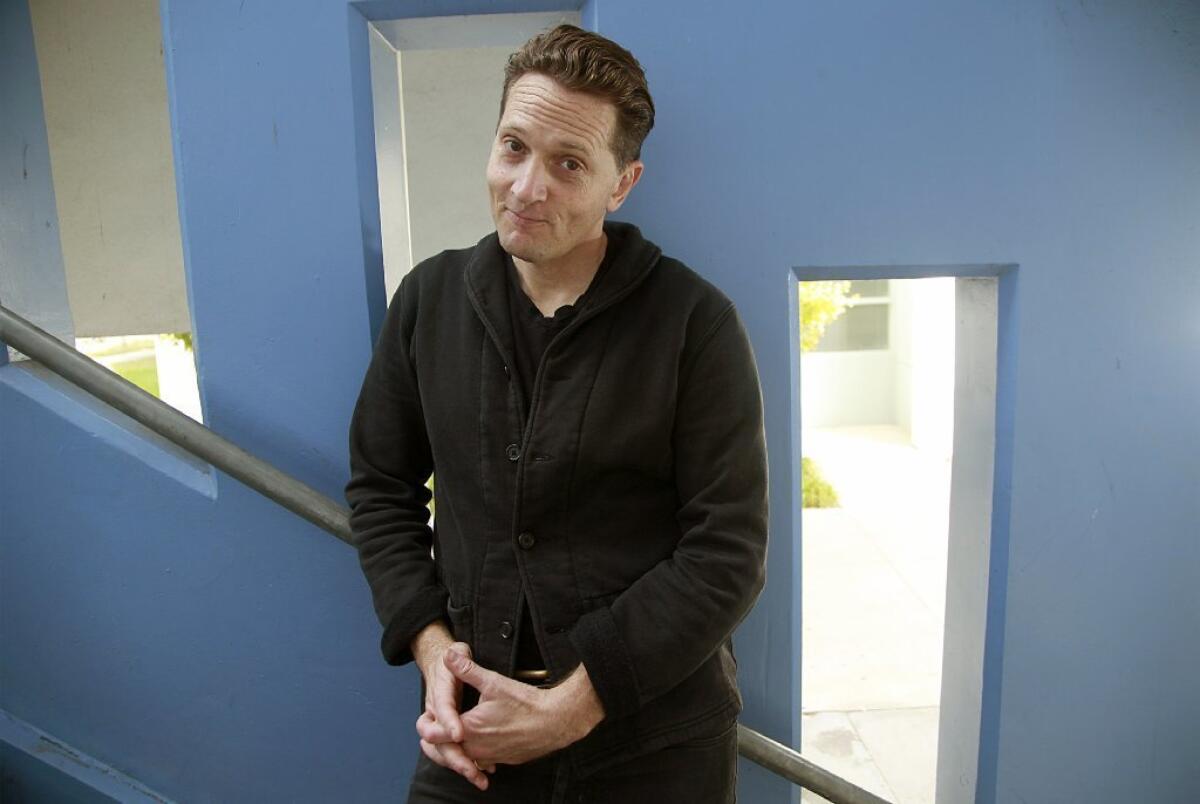‘Captain Fantastic’s’ writer-director on why and how he made his ‘dreaming’ film

- Share via
I write to ask questions.
Without the screenplay, there is no film.
And writing the screenplay is the only way I understand how to make a film.
We can all name films that were made from outlines or improvised around an idea, but the ones to which I return for sustenance are invariably films that began with great screenplays.
I’m the first to point out that some of my favorite directors — and arguably many of our greatest — don’t actually write what they direct. It’s an art all its own, of course, an interpretative one, and writing the screenplay is clearly not a prerequisite for directing the film. But it’s the only way that makes sense to me.
Why are we sitting in a dark theater for two hours watching strangers pretend to be people we know they’re not, acting out stories we know are made up?
— Matt Ross
It is the answer to the “why” and the “how” of the film.
I always return to this: Why are we sitting in a dark theater for two hours watching strangers pretend to be people we know they’re not, acting out stories we know are made up? If the goal is entertainment or distraction, video games and social media and the Internet are all great for that. I’m looking for something more, something deeper. I want engagement and the illumination of the human condition.
The “why” of “Captain Fantastic” is that I have two kids and I grapple, on a daily basis, with trying to be a great father and a present parent. A few years back, it occurred to me that my daughter was only going to be in my house for another eight years; she had already spent over half her childhood in our home.
That gave me pause. It goes so fast.
Like many of us, I travel constantly. When I’m home, I make every effort to be fully present, with my family, with my kids. We all struggle with this, we all live in a world of computers and smartphones — our smartphones are our mobile office — and we’re expected to respond when that thing buzzes, pulling us out of whatever we should be doing. Helping with homework. Cooking. Cleaning. Just being in the same room with other people.
Is Ben (played by Viggo Mortensen) insane for wanting to separate his children from malls and fast food and smartphones and social media and teach them a different way — to hunt and garden, to be critical thinkers, to live in harmony with the natural world? Or is he a braver and a better man than all of us? Can one live in the world and be apart from the world at the same time?

Viggo Mortenson stars in “Captain Fantastic.”
The “how” of “Captain Fantastic” is, given this story, how is it told? What is the structure? What is the point-of-view? I write to direct, so the specific form of the screenplay is deeply personal. In this case, the story is told primarily through the eyes of the father and it has a specific balance of drama and comedy — these reflect my taste and values. The “how” is how I perceive the world.
When I first met Viggo, before he agreed to do the film, he referred to the script as my “dreaming.” I love the idea that we’re conjuring up a world that doesn’t exist, or doesn’t yet exist, this idea that starts as one person dreaming, but then evolves into collective dreaming.
The screenplay doesn’t necessarily change, and in this case the actual text changed hardly at all, apart from scenes being cut because the film was simply too long. But I hope the film itself evolves organically; I want it to be made richer by the contributions of all the other storytellers — the actors, the cinematographer, the editor, the creative producer. This is the invisible writing that happens during production, this collective dreaming, all around a specific text.
I hoped to write a film without clear protagonists or antagonists (on a daily basis, we’re usually both), where all the characters were complex and imperfect, that allowed me to reflect on parenting and on our country; I wanted to write a film that didn’t tell anyone what to think but allowed the audience to read the information given, to hear the questions asked and draw their own conclusions.
Without the screenplay, there is no film.
I write to ask questions.
See the most read stories this hour »
More to Read
Sign up for The Envelope
Get exclusive awards season news, in-depth interviews and columnist Glenn Whipp’s must-read analysis straight to your inbox.
You may occasionally receive promotional content from the Los Angeles Times.




